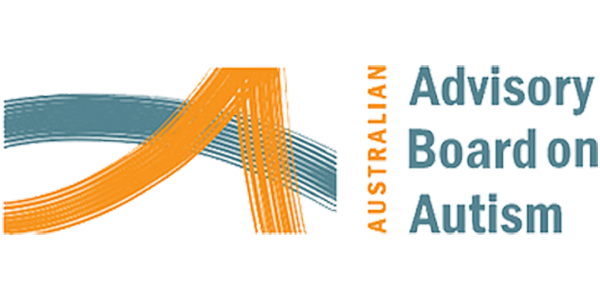Australian Autism Alliance Statement
22 Oct 2020
Australian Autism Alliance Statement
As a member of the Australian Autism Alliance, Autism Queensland is sharing the following statement issued by the Alliance about the proposed introduction of mandatory NDIA determined assessments in the NDIS.
Consistent with a broad range of voices across the disability sector, the Australian Autism Alliance (the Alliance) holds considerable concerns for prospective and current NDIS participants and their families about the proposed introduction of “independent assessments”.
Autism is the most prevalent diagnostic group in the NDIS: 31% of participants have a primary autism diagnosis, and an additional 5% have autism as a secondary disability. In the younger age groups, 65% of participants aged 7-14 years and 54% of those aged 15-18 years are autistic.
The Alliance acknowledges the stated objectives behind the introduction of NDIA-commissioned assessments, specifically the intention that consistency and equity should be at the centre of decision making, and that doing so will result in a fairer NDIS. The Alliance does not believe that the proposal, as it currently stands, will achieve these objectives.
We are concerned that the proposal will disadvantage autistic participants and their families and as such, must be substantially revised. Significant shortcomings include:
- The proposed NDIA-commissioned assessments are not independent, will erode choice and control, and do not align with the Tune Review in spirit or detail.
- The proposed assessment process will not work well for autistic people and their families.
- The decision to move to tender before critical pilots have been completed and evaluated undermines confidence in the process.
- Consistency with the National Guideline for Assessment and Diagnosis of Autism is not assured.
- Effective use of the assessment tools requires therapists with specific autism expertise.
- There is no clarity on how existing assessments will be treated through this process.
Participants’ goals and their resulting plans and plan budgets are highly individual and must not be undermined by the proposed introduction of NDIA-commissioned assessments.
Rather than an NDIA-commissioned assessment, undertaken by NDIA contractors, we suggest that autistic people be enabled to participate in a truly Independent Assessment by selecting an appropriately qualified and experienced therapist to undertake their assessment, provided this assessment complies with the National Guideline for Assessment and Diagnosis of Autism.
Further detail about the Alliances concerns includes:
The proposed NDIA-commissioned assessments are not independent and do not align with the Tune Review
The proposed NDIA-commissioned assessments are not independent. While assessors will not be employed directly by the NDIA, their immediate employer will be a contractor with financial incentives linked to their ongoing role delivering the assessments.
The Tune Review recommended that the NDIS Act 2013 be amended to require prospective participants to undergo assessments using NDIA-approved providers. While similar, the proposed assessment process does not align with this recommendation. Furthermore, the Tune Review explicitly states:
NDIA should not implement a closed or deliberatively limited panel of providers to undertake functional capacity assessments.
We are concerned that the proposed NDIA-commissioned assessment approach not only departs from the Tune Review recommendation, but appears to contradict it. Moreover, it is out of step with the core NDIS principle of choice and control.
The proposed NDIA-commissioned assessment process will not work for autistic people
Autism is multifaceted, nuanced and highly variable in how it affects the functional capacity of each autistic person, in each situation. We are concerned that this variability will not be appropriately recognised by an NDIA contractor conducting a very time limited assessment (a maximum of four hours, including report writing, has been proposed) of an autistic person they are meeting for the first time. Attending a high stress, high consequence assessment at a critical life stage with an unknown therapist, who has undetermined expertise in autism, will be challenging for autistic people and their families. The anxiety provoked by the process will present a significant barrier, which could prevent some autistic people from taking part.
While the NDIA has indicated that a participant can ask their treating health professional to attend the assessment, there is no funding to cover this. This option will therefore only be available to those who can afford to pay, which raises equity issues.
The Alliance recommends empowering participants to select a qualified independent practitioner of their choice to undertake the assessment. For equity and consistency, this assessor would need conduct the Independent Assessment in compliance with the National Guideline for Assessment and Diagnosis of Autism.
It is unclear whether NDIA-commissioned assessments will be consistent with the National Guideline for Assessment and Diagnosis of Autism
The 2018 National Guideline for Assessment and Diagnosis of Autism is the result of concerted work by Autism CRC, the broader autism community and health professionals. This highly praised Guideline is endorsed by the Australian Government and states and territories. The Guideline aims to create consistent and robust autism assessment and diagnostic practices across the country, including assessments of functional capacity.
It is the Alliance’s position that assessments must be consistent with this Guideline. Mandating an alternative approach ought to be avoided.
The tools require specific autism expertise in order to be used effectively and in accordance with the National Guideline for Assessment and Diagnosis of Autism
The Alliance notes that no single assessment tool solely meets the nuanced and individual needs of all autistic people, and the degree of flexibility inherent in the suite of tools suggested by the NDIA, (provided these continue to be consistent with tools under the International Classification of Functioning) reflects the best option for adapting to each autistic person’s functional ability.
However, decisions about which tools are best used for each autistic person relies on expert judgement. Section 4.2 of the National Guideline for Assessment and Diagnosis of Autism sets out the necessary requirements for therapists and clinicians who are to conduct a functional assessment, at the core of which is a detailed understanding of and experience in assessing autism.
The Alliance suggests that in order for any assessment of the functional capacity of autistic participants to be deemed relevant, the clinicians undertaking the assessment must be experienced in working with autistic people and their families, and have a detailed understanding of how each autistic person’s functional ability is highly context and setting-dependent. We consider mandatory training for all assessors in autism awareness a minimum standard.
The NDIA is moving to tender for contractors before the outcomes of related pilots are known and their impact on participants’ life outcomes understood
To-date, the full evaluation of the first small pilot of the NDIA’s assessment model has not been published. While a summary has been released, it does not include key information needed to assess its effectiveness against reform objectives, nor does it include information about the links between assessment reports and participants’ support budgets. A larger-scale second pilot is commencing shortly, having been delayed because of the COVID-19 pandemic.
There is value in the second phase pilot being concluded, its outcomes evaluated and the full findings published to inform a detailed design and implementation process. However, it appears the NDIA’s tender process to appoint contractors will be completed before this occurs, regardless of the pilot outcomes.
The Alliance holds sincere concerns about the impact that this process will have on autistic people and their families. The level of fatigue and anxiety being experienced in the autism community about this proposal is significant. Given the volume and breadth of community concern about the proposed NDIA-commissioned assessment, we believe that it is prudent to wait for the results of the second pilot before continuing with the tender process.
The impact of NDIA-commissioned assessments on plan budgets is unclear
It is unclear how results derived from the specified tools under NDIA-commissioned assessments will affect plan budgets. Without this information, the Alliance remains concerned that proposed changes will have adverse impacts on the support needed by autistic participants to live their lives.
There is no clarity on how pre-existing assessments will be treated by the NDIA
It is unclear if prospective or existing NDIS participants with detailed Independent Assessments undertaken by qualified clinicians would be required to be further assessed to fulfil the NDIA’s proposed requirements. Autistic people should not have to repeat their stories again and again to meet different bureaucratic requirements.
Further, requiring repeat assessments (despite earlier ones often being funded by Medicare or other public means) represents wasted resources that could be better applied elsewhere to provide better outcomes.
While the NDIA have indicated that pre-existing assessments will form part of the overall ‘evidence’ it is unclear how much weight they will have. We note the findings of the Administrative Appeals Tribunal in Ray and National Disability Insurance Agency [2020] AATA 3452, where pre-existing reports from multiple professionals were disregarded in favour of a single NDIA-commissioned report. This resulted in Mrs Ray being refused access to the NDIS. The AAT found the reports from Mrs Ray’s treating professionals to be more accurate and reliable than the NDIA-commissioned report, and overturned the original decision to refuse access to the Scheme.
We are concerned that proposed changes (including to the NDIS Act and Rules) will make it easier for assessments obtained by autistic people to be disregarded, and that grounds for review of NDIA decisions by the Administrative Appeals Tribunal will be narrowed.
Regulation of proposed IA providers must match that required of support providers
Registered providers of NDIS supports are oversighted by the NDIA Quality & Safeguards Commission. The Alliance notes with concern that no such requirement seems to be in place for providers of NDIA commissioned assessments.
About the Australian Autism Alliance
The Australian Autism Alliance (the Alliance) was established in 2016 to create ‘one strong voice for autism.’ Our purpose is to improve the life chances of autistic people and to facilitate collaboration within the autism community. The Alliance is a national network of 12 diverse autism organisations and brings together autistic led organisations, research bodies, advocacy groups and service providers.
Alliance partners include:
- AEIOU Foundation
- Amaze
- Australasian Society for Autism Research
- Autism Aspergers Advocacy Australia
- Autism Queensland
- Autism SA
- Autism Spectrum Australia
- Autism Tasmania
- I CAN Network
- Autism Self Advocacy Network
- Autism Association of Western Australia
- The Sycamore School
Contact:
Co-chairs of the Australian Autism Alliance are Terry Burke and Paul Micallef who can be contacted at [email protected]


